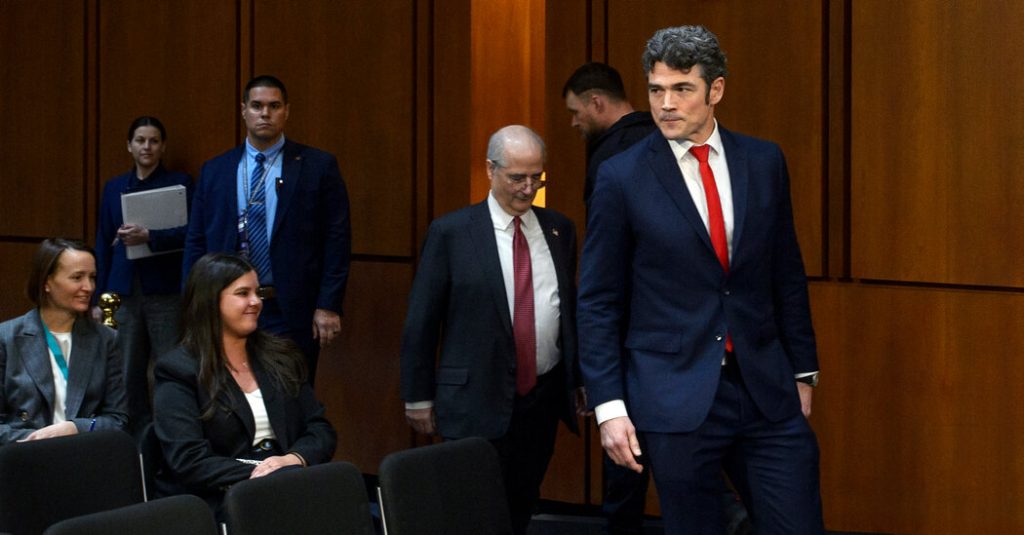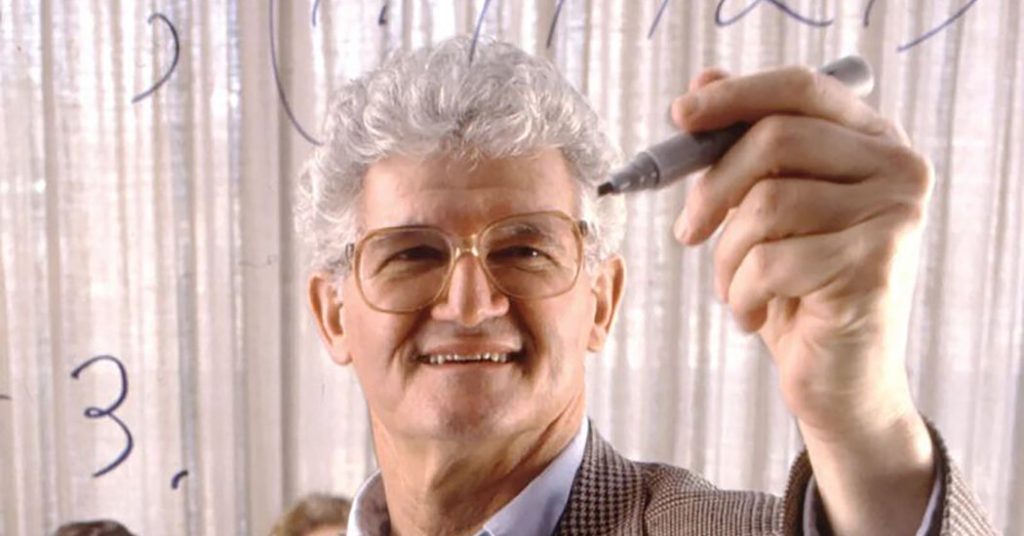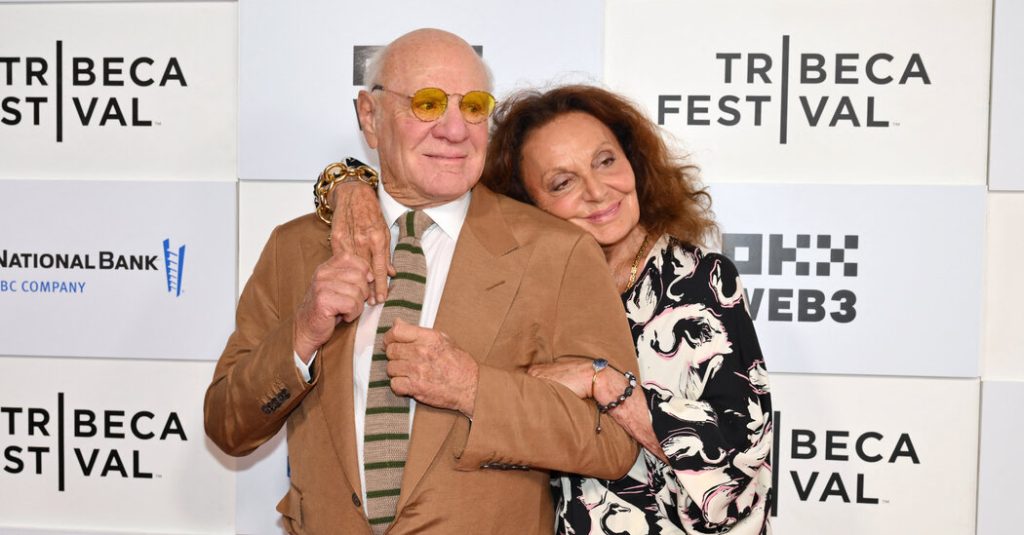Editor’s Note: This story is a part of Peak, The Athletic’s new desk covering leadership, personal development and success through the lens of sports. Peak aims to connect readers to ideas they can implement in their own personal and professional lives. Follow Peak here.
CLEVELAND — Steven Kwan grabs a black coffee from the Starbucks in the back corner of the Barnes & Noble at Crocker Park, the shopping district in the west side suburbs of Cleveland. Then, he roams the self-help and non-fiction aisles.
This is his sanctuary, far from the suffocating pressure of a batter’s box. And yet, every step through this bookstore prepares him for those battles with a pitcher later that evening.
Kwan retreats to the balcony of his residence to complete at least two of his three daily tasks as he eats breakfast and sips that coffee. He scribbles notes into his journal. He meditates. And, if there’s time, he reads. His modest target is 10 pages per day.
These are self-assigned responsibilities, developed during his climb to the big leagues. Those practices have rescued him from failure at Oregon State, from uncertainty in the minors and from his toughest days at the highest level.
Now, Kwan is an All-Star left fielder whose well-rounded profile is only burgeoning with the Guardians. He’s a leader teammates flock to for advice. He’s a union rep, a Gold Glover, a batting title candidate who irritates pitchers with his unparalleled plate discipline, contact ability and a newfound power stroke.
He’s a 5-foot-8, 170-pound menace at the plate who has compensated for physical limitations by pursuing competitive advantages on the mental side.
“All the human aspects of overcoming failure, doubt, fear, all these things that creep in on a daily basis, is the hardest part of this game,” says teammate Austin Hedges. “He’s such a great inspiration for everybody because he acknowledges it and gives everybody a strategy for how to overcome it. … ‘This is the stuff that works for me, and if you want some help with it, I’m here with arms wide open.’”
These are the four tenets that have helped Kwan become one of baseball’s best-kept secrets.
1. ‘We’re terrible predictors of the future.’
Kwan once read in a book that humans are poor prognosticators, a simple line that encouraged him to stop wasting time and energy worrying about upcoming at-bats or potential transactions.
“There’s no point in thinking about what could happen a week from today or three days from now,” he says. “All we have is right now.”
He didn’t think that way as a freshman at Oregon State, and it nearly cost him.
The assignment was simple: Kwan had to swing by a meet-and-greet full of distinguished business people in ritzy suits. If, after some icebreakers, he could convince one of the power brokers to sign a sticky note, he’d receive 20 points of extra credit for his finance class.
“The easiest opportunity,” he says.
He didn’t go.
“I didn’t even give myself a chance.”
As a freshman on a loaded Oregon State roster, it was difficult for Kwan to see the path forward. When he notched a couple hits, he didn’t collect as many as Nick Madrigal. He didn’t pummel baseballs over the fence like Adley Rutschman and Trevor Larnach. He suffered from impostor syndrome. He still does, to an extent.
When Kwan was 18, a Toronto Blue Jays scout told him: “If you were bigger, you’d be getting drafted. You wouldn’t be going to school.” It was a backhanded compliment, but it stuck with him.
Kwan’s approach at the time was to complete the bare minimum required to qualify as a student-athlete and avoid study hall. He thought “that was as high of achieving as it gets.” He had a midterm exam in Math 111 the same day the video game “Fallout 4” was released. He decided he’d try out the game for 20 minutes and then cram for his test. Instead, he played until 3 a.m., failed his midterm and rushed to study hall to rescue his dismal grades.
“I was so irresponsible, just lying to myself, (seeking) instant gratification,” he says.
He had no schedule, no routine and no semblance of a priority list. None of that mattered to him because he had baseball, though he was suffering through a rotten freshman season.
“I put all my eggs in this basket,” he says, “which is funny, because I didn’t even really believe in it. It wasn’t a good plan. I knew a complete overhaul was needed.”

When Kwan was a freshman, Oregon State coaches pushed each player to identify an uncomfortably lofty goal. Kwan, who hit .215 that year, declared he wanted to be “the best Asian-American baseball player to ever play.” Now, that doesn’t seem so far-fetched. But then?
“Just blind hope and faith,” he says. “You have to make sure you love baseball. That was the one absolute in my life. It made sense in my mind that if I love baseball enough, it would reward me back. I just had to find my way. …
“I didn’t have a plan. It wasn’t a certain way. It was just, ‘I know I need to hit as much as possible. I know I need to rework my mental game. And it’s going to work out.’ I didn’t give myself another option.”
By the time Kwan arrived at his first big-league spring training in 2022, he had given up trying to map out his future. He wasn’t banking on making the Opening Day roster, especially since the lockout had shortened camp to a few weeks, not nearly enough time to leave a profound impression on the team’s evaluators.
He did make the roster, though. He collected 10 hits and seven walks in his first five games. He stuck in the big leagues and never looked back — or too far forward.
“I’d like to believe I believed it,” he says, “but I don’t think I ever could have imagined it would be something like this.”
2. ‘The easiest thing you can do to make yourself happier is have daily gratitude.’
When he stands on the foul line during the national anthem, Kwan completes a calming breathing ritual. His heart tries to escape his chest as the clock ticks toward first pitch. That never changes. So, he takes a deep inhale and replays memorable moments from previous games at that particular ballpark.
In Chicago, he reminisces about heated games in September 2022 that decided the AL Central. In Detroit, he imagines Miguel Cabrera’s final game and David Fry’s season-salvaging home run in the 2024 ALDS. In Kansas City, he recalls his first weekend in the majors, when his parents spent three days clapping and hollering and he whacked one pitch after another.
“It takes me from crippling, paralyzed fear,” he says, “to a baseline of neutrality. I think I’ve been successful because I’ve been so neutral, so level.”
Less than three months into his big-league career, he was Cleveland’s leadoff hitter, having earned trust as a rookie from a grizzled manager in Terry Francona. Last season, he flirted with a .400 batting average in July. Twice in three years, he has thrived on the postseason stage. All along, he has spoken about his exploits as if he’s a 25-handicap golfer who somehow avoided the lake looming beside the green. The modest approach keeps him grateful and keeps him from becoming complacent, he says. He tells himself this “lifestyle isn’t real, isn’t permanent.”
“When you start getting used to all this stuff,” he says, “that’s when people change or your mentality shifts. Having that constant gratitude puts you in a regular person’s mindset, as opposed to, ‘This is my life. This is going to be forever. This is who I am now.’”
It’s an approach he derived from “The Art of Impossible,” a “peak performance primer” in which author Steven Kotler outlines the steps “to accomplish the impossible.” Kwan considered the book “a cheat code” when he read it a few years ago.
“Being gracious for a lot of things that happen is the secret to a lot of people being happier and more fulfilled,” he says. “This is a moment in my life that’s going to pass,” he says, “but right now, this is super cool.”
3. “Comparison is the thief of joy.”
At the family home in Fremont, Calif., Kwan’s room still tells the story of a kid who wanted to be a big leaguer. There’s a wall with a collage of player cutouts — Ichiro, Carl Crawford, Moises Alou — that Kwan’s older sister created. Baseball was always the plan, even if he admits he didn’t truly buy into his potential until he was on the cusp of the majors.
He believed in his skills, but he was hamstrung by the nagging feeling that the inherent traits — his hand/eye coordination, contact ability and instincts on the diamond — could only get him so far. He had a ceiling, and it wasn’t much higher than his diminutive frame. Or, at least, that’s what he was led to believe, until he decided to stop worrying about what others had or did, and focused on what he could do.
“God didn’t just make him Aaron Judge,” says Guardians catcher Austin Hedges. “(Steven) has things to overcome. To be as great as he is, he has to do even more. He’s the most mentally prepared and tough person in the game. That mental edge allows him to be the best leadoff hitter in the game, without being a 6-foot-4, 220-pound physical specimen.”

Even when he hit enough to stick in the majors, a similarly profiling Luis Arraez won batting crowns. Other hitters supplied more muscle. When he added power to his arsenal, he attributed it to having “shorter limbs” that allow him to yank an inside fastball into the outfield seats, rather than acknowledge how frustrating a matchup he is for any pitcher. Working to shut out that nagging voice is a constant battle.
“I don’t think it ever goes away,” he said. “You gain little bits of confidence as you go, and as you see the results in front of you, you gain a little more and a little more. But I don’t know if that voice ever really leaves.”
4. ‘There are infinite universes and everything has happened before and this is the universe where X, Y and Z happen.’
Twice last winter, Kwan was spotted in downtown Chicago. Once, at a Korean grocery store, by a Clevelander who recognized his beloved hometown leadoff hitter. The second time, a card shark scoped him out as Kwan shopped near where the Bears stay the night before a home game.
“That was a little bit jarring,” he says. “That’s our oasis. I just want to be a regular person there.”
He doesn’t consider himself anything but. Kwan is quick to reject any attempt to build him up as more than an ordinary person who has found a niche slapping singles across the outfield. When Kwan was approached about pulling a sword from a basketball during the Cleveland Cavaliers’ pregame introductions ahead of Game 2 of their series against the Miami Heat on Wednesday, he insisted a throng of teammates join him on the court.
He doesn’t covet the attention, but he’s learning that it’s part of the job. After all, as he and former minor-league teammate Cody Farhat used to tell each other, this is one of a boundless number of simulations, and Kwan just so happens to be living out the one in which he’s an All-Star who can’t mill around the third-largest city in the country without being spotted.
“He’s quickly becoming a household name and a very prominent big leaguer that everyone knows,” Hedges said.
The All-Star Game nod last year planted him on the national radar. He led off for an American League lineup that had Gunnar Henderson, Juan Soto and Judge hitting behind him.
He struggled to wrap his head around taking a private jet to Dallas for the festivities and marveled at how teammate José Ramírez, a perennial All-Star, handles the pressures and responsibilities of the week, year after year.
When it’s suggested that Kwan, like Ramírez, could become a regular participant in the exhibition, Kwan shrugs it off and contends “just being mentioned in the same sentence is cool.” In another universe, he reminds himself, he never would have sniffed the majors.
“This is just a wild (outcome) that has taken off and gone beyond my wildest dreams,” he says. “So many things have lined up and worked out so well.”
So, he embraces those first-pitch jitters. He accepts that he’s a familiar face to the public. He welcomes the frantic pace of All-Star week.
And he keeps reading, searching for the next principle that will help prolong a career that’s off to a blistering start.
(Illustration: Dan Goldfarb / The Athletic; Photo: Daniel Shirey / MLB Photos / Getty Images)






